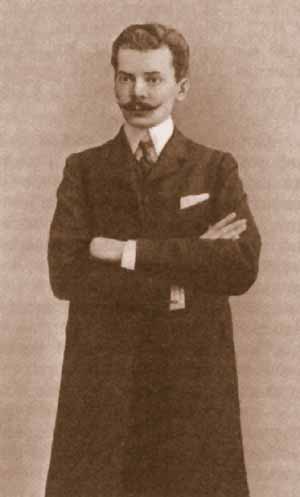Sergey Makovsky on:
[Wikipedia]
[Google]
[Amazon]
 Sergey Konstantinovich Makovsky (russian: Серге́й Константинович Маковский; 1877–1962) was a Russian Empire
Sergey Konstantinovich Makovsky (russian: Серге́й Константинович Маковский; 1877–1962) was a Russian Empire
e-text
Poets from the Russian Empire Art critics from the Russian Empire 1877 births 1962 deaths White Russian emigrants to Czechoslovakia White Russian emigrants to France {{Russia-poet-stub
 Sergey Konstantinovich Makovsky (russian: Серге́й Константинович Маковский; 1877–1962) was a Russian Empire
Sergey Konstantinovich Makovsky (russian: Серге́й Константинович Маковский; 1877–1962) was a Russian Empire poet
A poet is a person who studies and creates poetry. Poets may describe themselves as such or be described as such by others. A poet may simply be the creator ( thinker, songwriter, writer, or author) who creates (composes) poems (oral or writte ...
, art critic
An art critic is a person who is specialized in analyzing, interpreting, and evaluating art. Their written critiques or reviews contribute to art criticism and they are published in newspapers, magazines, books, exhibition brochures, and catalogue ...
, and organiser of many exhibitions of modern art.
Makovsky was the son of the painter Konstantin Makovsky
Konstantin Yegorovich Makovsky (russian: Константи́н Его́рович Мако́вский; (20 June o.c.) 2 July n.c. 1839 – 17 o.c. (30 n.c.) September 1915) was an influential Russian painter, affiliated with the " Peredvizhni ...
.
Makovsky became a leader of a Russian Renaissance
The Renaissance ( , ) , from , with the same meanings. is a period in European history marking the transition from the Middle Ages to modernity and covering the 15th and 16th centuries, characterized by an effort to revive and surpass ideas ...
in art, organising exhibitions of modern art and writing for several periodicals about new movements in the visual arts, architecture
Architecture is the art and technique of designing and building, as distinguished from the skills associated with construction. It is both the process and the product of sketching, conceiving, planning, designing, and constructing building ...
and poetry. From 1909 to 1917 he edited and published the ''Appolon'' arts magazine in Saint Petersburg
Saint Petersburg ( rus, links=no, Санкт-Петербург, a=Ru-Sankt Peterburg Leningrad Petrograd Piter.ogg, r=Sankt-Peterburg, p=ˈsankt pʲɪtʲɪrˈburk), formerly known as Petrograd (1914–1924) and later Leningrad (1924–1991), i ...
. He also wrote about the significance of Russian Christian icons
An icon () is a religious work of art, most commonly a painting, in the cultures of the Eastern Orthodox, Oriental Orthodox, and Catholic churches. They are not simply artworks; "an icon is a sacred image used in religious devotion". The most ...
and in 1914 began a periodical on this subject.
After the Bolshevik
The Bolsheviks (russian: Большевики́, from большинство́ ''bol'shinstvó'', 'majority'),; derived from ''bol'shinstvó'' (большинство́), "majority", literally meaning "one of the majority". also known in English ...
seizure of power in Russia, Makovsky went into exile. He continued to publish in Russian his poems and studies of art. In 1955, Makovsky published in Russian a memoir
A memoir (; , ) is any nonfiction narrative writing based in the author's personal memories. The assertions made in the work are thus understood to be factual. While memoir has historically been defined as a subcategory of biography or autobi ...
, Portraits of contemporaries''.
Further reading
*Elena Steinke: ''Der Briefwechsel zwischen Sergej Makovskij und seiner Schwester Elena Luksch-Makovskaja. 1914-1961''.e-text
Poets from the Russian Empire Art critics from the Russian Empire 1877 births 1962 deaths White Russian emigrants to Czechoslovakia White Russian emigrants to France {{Russia-poet-stub